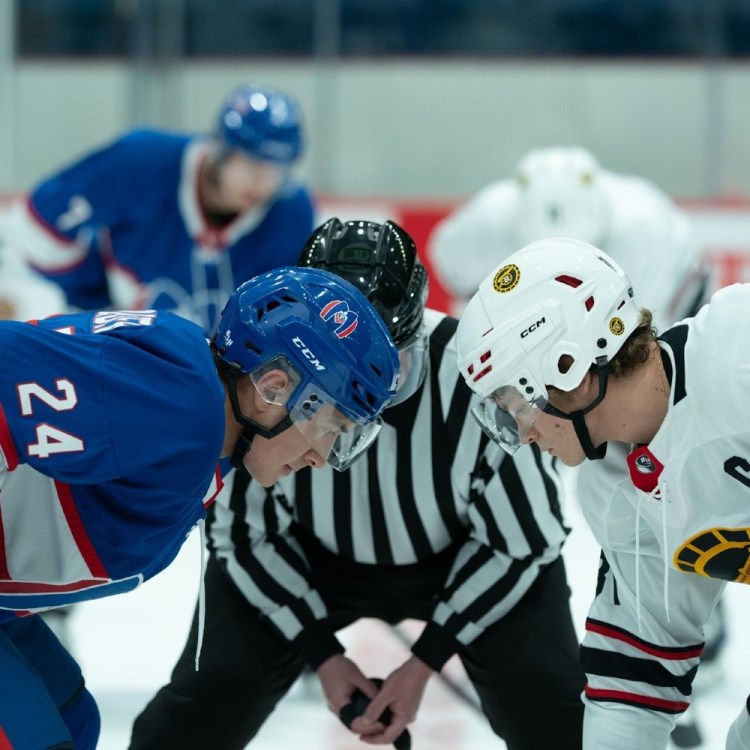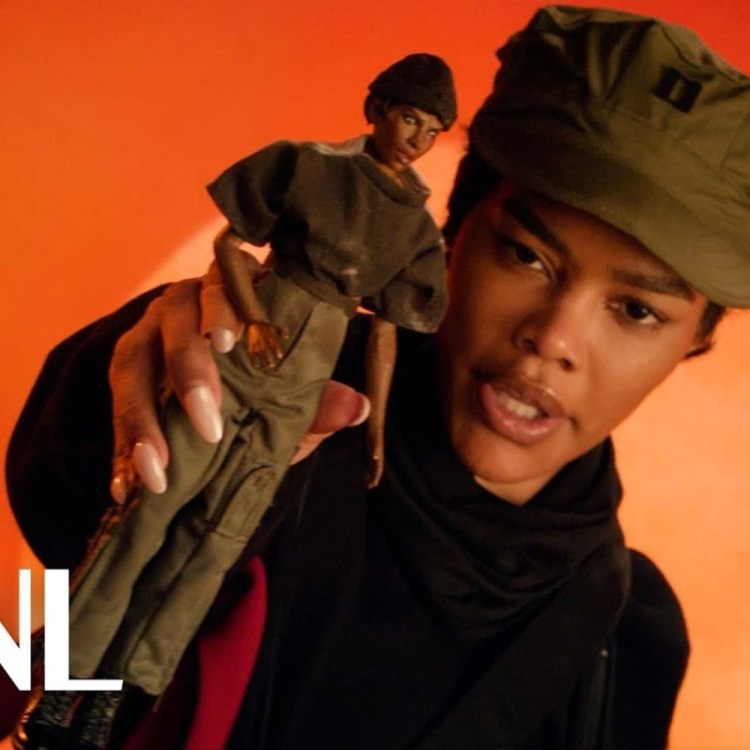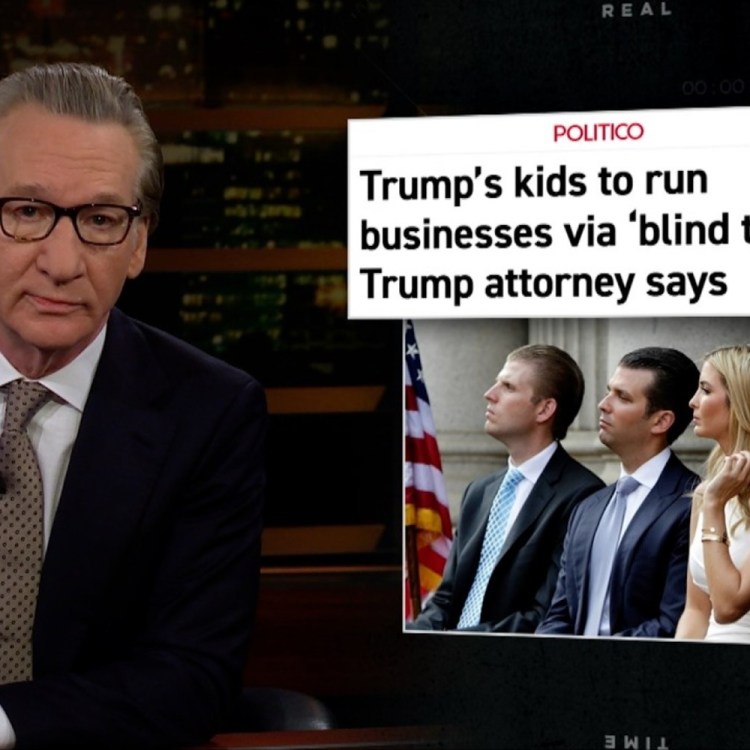Your ears will pick up the world like a maddening symphony. You will be filled with all the life you can hold. These are the promises the vampire Lestat de Lioncourt (Sam Reid) makes to Louis de Pointe du Lac (Jacob Anderson), the human he transforms into his vampire companion in Anne Rice’s Interview with the Vampire. The freshman horror series, released by AMC+, has been a hit for the network, praised for its updated take on Rice’s beloved novel. The show moves back and forth between past and present from the early and vibrant 1910s (two centuries later than in the book) in Storyville, New Orleans’s red light district where Louis operates a brothel, and Louis’s mysterious Dubai residence in 2022. The most refreshing changes though, are that it makes the book’s queer subtext text by establishing Louis and Lestat as lovers, and has cast Anderson, a Black actor, as a race-bent Louis. Anderson’s casting has enriched and complicated the source material by opening up Rice’s world to more truthfully meet ours and the realities of racism that color it. For example, similar to how HBO’s Watchmen used fiction to educate people about the 1921 Tulsa race massacre, Interview with the Vampire has a plot line around ordinance 4118, a real Jim Crow law that sought to segregate black sex workers from the rest of the district to benefit Storyville’s white brothel owners.
For Anderson, who is perhaps best known as the steely commander Grey Worm in HBO’s Game of Thrones, this is the role he’s been waiting for his whole career. Throughout the first season he oscillates his emotions beautifully to bring Louis’s inner torment — an existential struggle over how to deal with human concerns like morality, loneliness and family although he is no longer human — to life.
The seven-episode season is a wild and bloody ride. Love bonds were forged and fiddled with, there were crazy stunts, betrayals, and blow outs, and, as the show’s title indicates, intense tête-à-têtes with an interviewer (Daniel Molloy played by a terrific Eric Bogosian) trying to wrangle the interview of a lifetime out of Louis. It also sets up a possibly wilder season two.
InsideHook: If you could take me back to the initial chemistry read, what was Rolin [Jones, showrunner] looking for between you and Sam? Because maker, mentor, lover, these should not all be one person, but they are for Louis, which makes it tricky. I’m interested to see what he wanted to see in you guys.
Jacob Anderson: It’s probably a question for Rolin, but I think I asked Alan [Taylor, director of episodes 1 & 2] at one point, “What was it that you were looking for in a chemistry read?” Because when it’s over Zoom, I’m not sure how much you can actually get from that. Alan was like, “Actually, it was more about the chemistry that you guys had when you weren’t doing the scenes.” He was like, “I could see that you both sort of have the component parts of the characters.” We’d done seven rounds or something by that point. I think it was just about how we communicated really in between doing scenes together.
This is something a lot of the characters in the show disagree on, so in your personal opinion, is what Louis and Lestat have love?
It’s very difficult to really pinpoint what love is in a human context, let alone in a vampire context. But I would say that it is a seemingly unbreakable bond that is difficult to live with, very difficult to live without. It’s kind of a question that the show asks. The way that Lestat treats Louis through the season, and also the way that Louis sometimes treats Lestat, and the way they both treat Claudia and she treats them. You could say that it is love and that what their relationship is, is a love story. But then you could say, “Is it acceptable to behave in this way towards people that you love? Is that love or is it a narcissistic exercise? What is that?” I don’t think the show comes up with clean answers. I think that Louis is in love with Lestat, but he just doesn’t express it in exactly the way that Lestat does, or exactly the way Lestat wants him to. But it’s a very difficult thing to define in a sort of clean or satisfying way. I’d say it’s definitely a romance.
A dark romance.
A very dark romance.
I haven’t read Anne’s book, but I’m familiar with what a dark romance would be because I loved Hannibal. I was like, “This is totally a Hannibal dynamic.” Another thing that came with Hannibal was the Fannibals and Hannigram shippers. Were you surprised by Loustat shippers and being sent queer fan art? There’s been a lot of that around the show, and maybe you haven’t been sent this degree of art before.
I actually actively spend as little time on social media as possible because I’m scared of it. I just don’t know how to do it anymore. I did back in the day, but now I just find it incredibly overwhelming. Not specifically people interacting with me, but just, I feel like I go on any of the apps and I’m bombarded with anxiety about the world and about how people are ingesting the world. But I have seen things. I’ve seen some really beautiful art, incredible work that people are making inspired by the show. Coming into this in the beginning, I definitely had a fear that I wasn’t going to be accepted because of how Louis is presented in the original novel. It feels really significant to me that I’m included in the way that people think of this story now. From that point of view, it’s lovely. Loustat is something that…I mean, Sam was way more kind of ingratiated into the Anne Rice fandom than I was early on, I’d only read the first two books, which I was very much in love with, but I hadn’t read beyond at that point. But, we were saying, “Loustat.” We were calling them “Loustat” throughout the shoot.
As an interviewer myself, I’m very interested in Louis’s relationship with Daniel Molloy and this long-term interview project. There’s a great line where Louis says the tapes are a performance, which would make it a performance we’re watching on top of your performance on the show. Do you approach those scenes, those versions of Louis, as different characters?
I think Louis is performing in every era of his life. There are moments where he allows himself to be vulnerable enough to be himself. In episode six what he’s experiencing is clinical depression. He’s unable to be anything else. He’s unable to access anything other than that. He kind of dissociates, he can’t access his joie de vivre or whatever his essence is in that moment, so his essence becomes that. But that was part of the fun of doing the interview was that sometimes Louis is —how do I say this without giving too much away, and I mean giving things away beyond the first season — I think that Louis really believes that a lot of this is the truth. There are other things that he knows deep down are not true, but he has to tell himself a version of it in order to cope.
Daniel is somebody who he’s picked for a reason. I think Louis really needs a therapist, but he can’t get a therapist because he’s a vampire. It would be very difficult for him to get a therapist and to unpack his life in that way. He finds the one person that can help him unpack it. It’s not really what you asked me. But I love even the stuff in 1910. He’s performing this bravado, and he’s performing this kind of affable family man. He’s constantly in a state of trying to be something in other people’s eyes. Sometimes as well that’s about performing for Lestat. It’s performing as the submissive one in their relationship. Or it’s about him being into vampirism when he’s not. I love playing those degrees and saying one thing and then doing another thing with your face. I love that stuff. That’s how I observe people.
What do you make of Rashid/Armand’s comment that he’s chronicling his suicide?
I don’t think that Louis is being nihilistic or that he’s feeling suicidal. He’s in a period of trying to figure out who he was, what his imprint on his life and everybody within it was. But in doing that, he’s going to bring a lot of heat because the other vampires are not going to be very happy about it. I think that specific line is less about Louis feeling suicidal, and more about the vampires will come for him if this book is published. He’s taking a massive risk in sharing this stuff and confiding his life to somebody.
Speaking of Armand, did you do a chemistry read with Assad [Zaman] as well? Because that’s obviously going to be a significant thing later on, too.
No, I didn’t. The first time I met him was maybe a couple of weeks before we started shooting in Dubai, because we shot Dubai at the very end of the shoot pretty much simultaneously with episode seven. We met very late in the game, but he’s awesome. I think as well, Rolin knew Sam and I pretty well by that point. I guess he knew that we would get on. You could see what the chemistry might be between everybody if you put everyone in the room, which doesn’t always work. But luckily it has worked on this.
You got to do a lot of things this season. Which was the hardest: speaking French, acting inside of a coffin, drinking so much fake blood, or running into an actual burning building?
I mean, none of it was hard. I loved it. I love my job. Part of the fun is play and pretend, and getting to do things you’d never get to do otherwise. There are hard days, but I think that’s mostly to do with the hours. It’s mostly to do with trying to do justice to this incredibly complex writing and making it look how it feels to read. Making it feel like that, that stuff is really hard when it’s 4 a.m. but…
But there’s nothing that really grossed you out?
No, nothing practical or physical. It’s all fun. I don’t want to trivialize the scene at the end of episode five, but for that, there was a point where we were on stage in this green room, like a green screen, and I was sideways on this harness just spinning around in a circle, and when else are you going to get to do that in your life? I don’t find that stuff difficult. I love a challenge. There’s nothing more challenging than this job, than this particular part. It’s what I’ve always wanted to be able to do, is to do all of it. Every day a new crazy thing was thrown at us.
William Jackson Harper Talks True Crime and “The Resort”
We caught up with the actor ahead of his new Peacock seriesA big part of what made this adaptation really great, especially for Black viewers, was that it was color conscious storytelling. A lot of that had to do with it being set in the American South during the time period it was set in. But in the finale, you’re leaving that and leaving that area. Are we still going to explore that aspect of him, of Louis and Blackness, wherever and whenever we end up in season two?
I think as it does with all of us, it follows you wherever you go, because we don’t live in a world that is post-racial. Wherever we find Louis, it’s going to be a part of his story. It’s going to be a part of his existence and his daily life. I mean, it is in Dubai, you don’t really see it, but I think there’s something very interesting about this Black man living up in a tower in Dubai. Honestly, I’m not being secretive, I don’t know yet exactly what is going to be explored in season two, but I always find this thing really interesting about European sensibilities at a certain time. Like James Baldwin going over to Paris to escape racism in America. This idea that Paris was this really welcoming place for Black people, particularly African-Americans. It would be interesting to see what we do with that. I think in a lot of cases it wasn’t necessarily true. It just wasn’t as awful as it was in America at that time.
Or was welcoming for that one Black person.
Yeah, it’s like if you are a poet or a brilliant writer, or an entertainer, or a sports person — like it is now in lots of places. It’s the exceptionalism of it. It will be interesting to see if Louis and Claudia can move in a kind of easier way in white spaces. Or if all of the spaces are going to be white spaces. I don’t really know yet how that’s going to work, but I’m excited to get into it hopefully.
This article appeared in an InsideHook newsletter. Sign up for free to get more on travel, wellness, style, drinking, and culture.

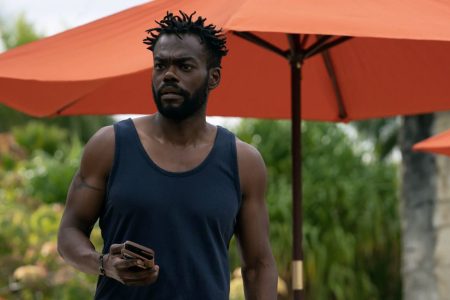
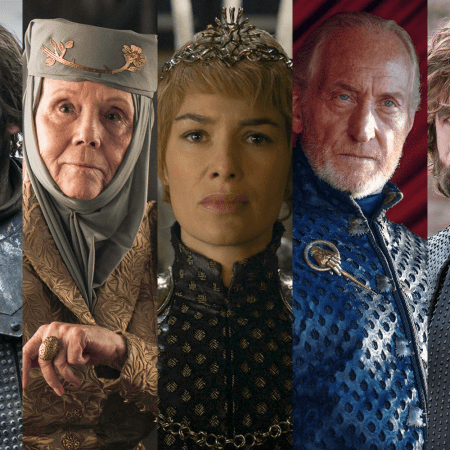
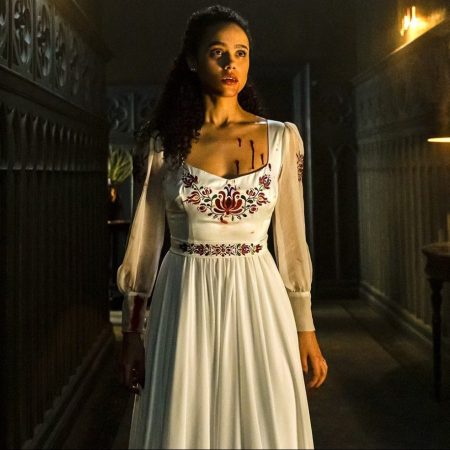
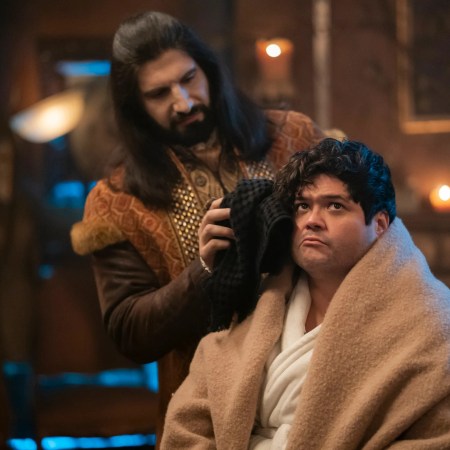

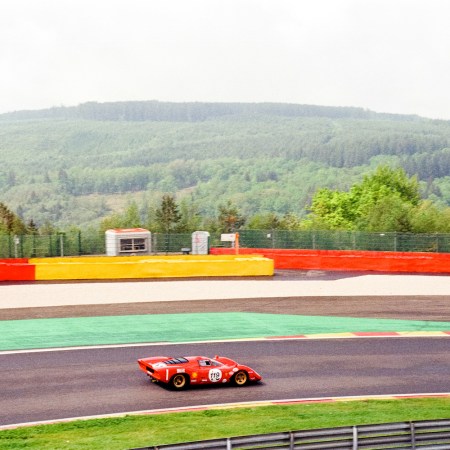
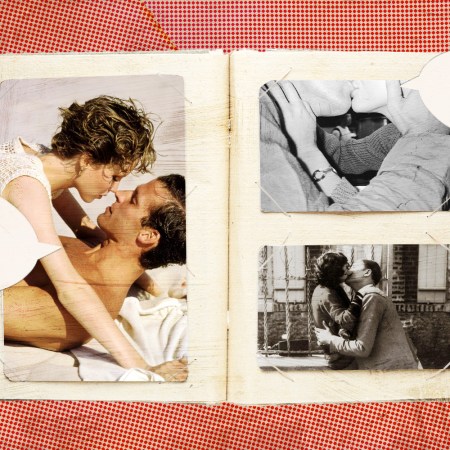
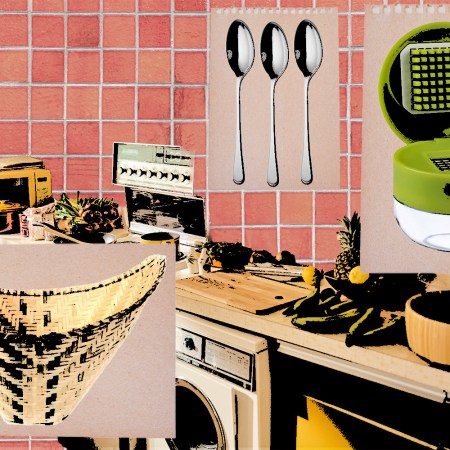
![Noah Wyle [third from left] with the season 2 cast of "The Pitt"](https://www.insidehook.com/wp-content/uploads/2026/01/the-pitt-season-2-schedule.jpg?resize=450%2C450)
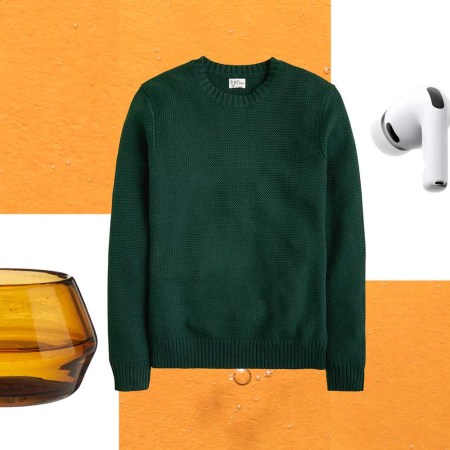

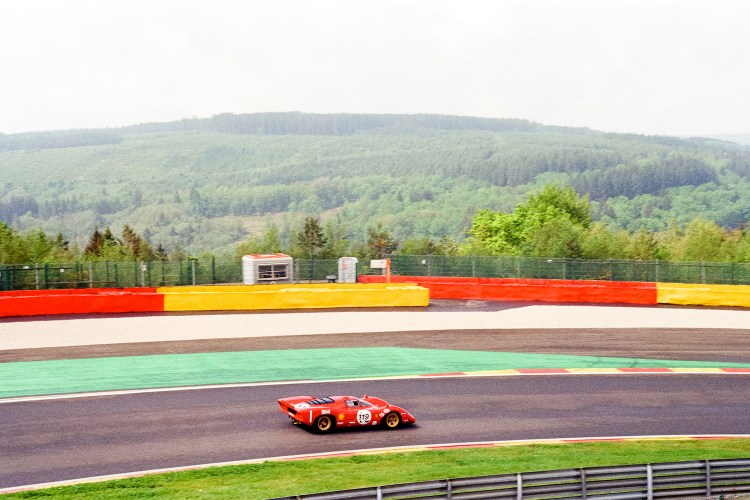
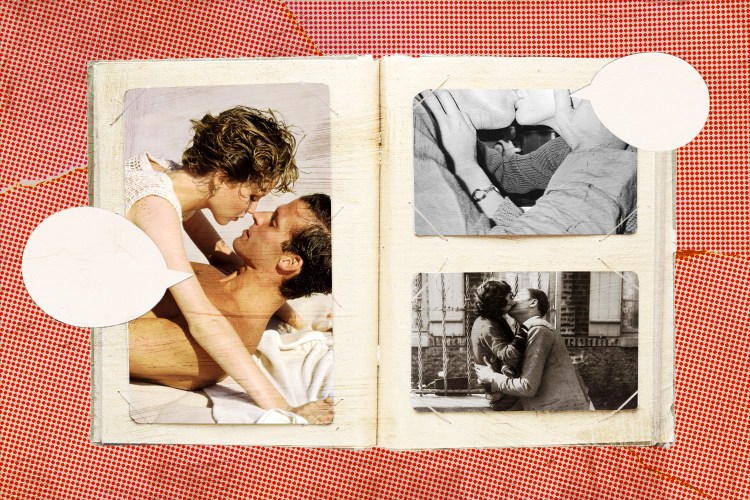
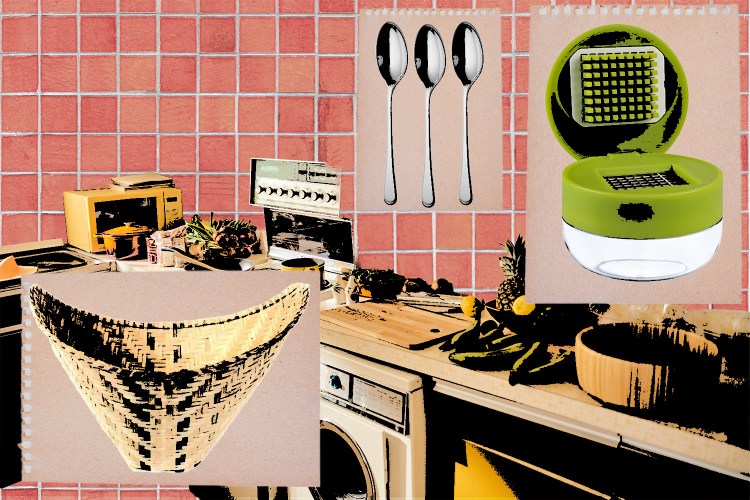
![Noah Wyle [third from left] with the season 2 cast of "The Pitt"](https://www.insidehook.com/wp-content/uploads/2026/01/the-pitt-season-2-schedule.jpg?resize=750%2C500)
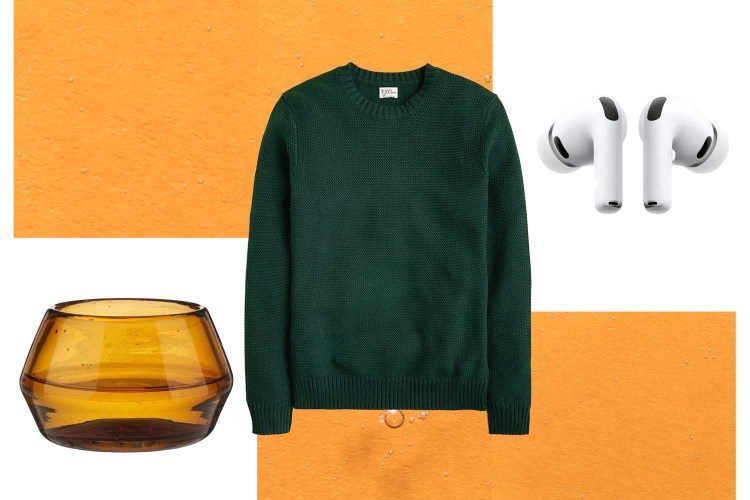
![Noah Wyle [third from left] with the season 2 cast of "The Pitt"](https://www.insidehook.com/wp-content/uploads/2026/01/the-pitt-season-2-schedule.jpg?resize=750%2C750)
